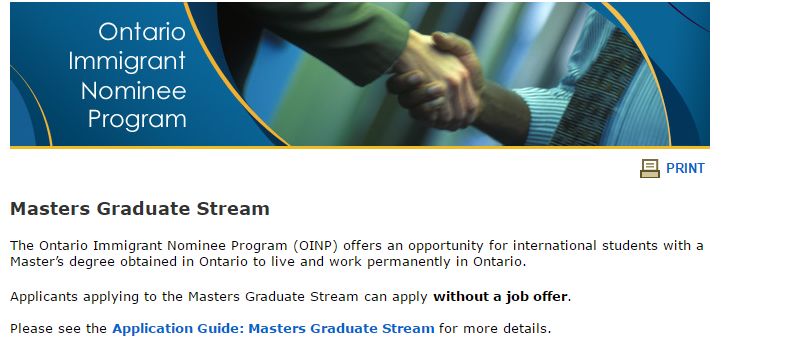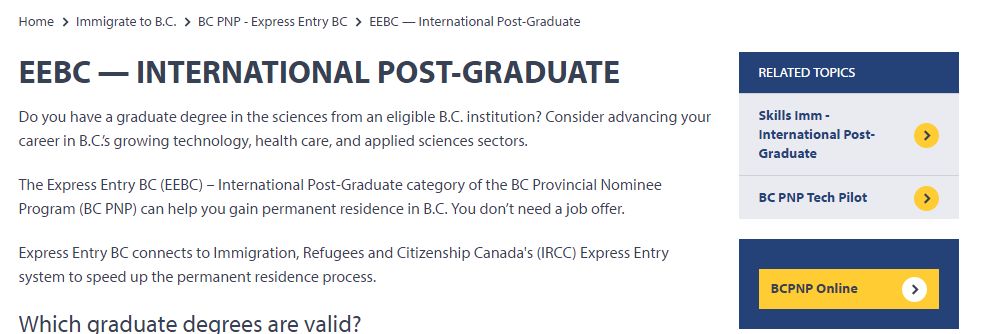Scan


Studying abroad has become more and more popular, and it is no longer a patent of wealthy people.
Compared with the master's programs in other countries, Canada is one of the most popular countries in the study abroad, which can be analyzed from several aspects. First of all, the world's leading education quality, Canada is a North American education system, a globally recognized high-quality education system; excellent study environment, superior social environment, rare skin color discrimination, international students can receive quality education in a safe environment; study abroad Cost-effective, compared to the United Kingdom and the United States, Canada costs 30%-40% lower, and the quality of education does not lose to the United States and the United States; the biggest need is that Canada is very welcome to immigrant students, especially in some provinces for immigration graduates have great immigration policy .
Master's programs are available in all medical colleges and universities in Canada, as well as in most general colleges. Different from the domestic master's degree examination, as long as you reach the professional basic score, you can basically enter the professional study. Different schools in Canada and different majors have different requirements, and specific reference to different professional requirements. The following study will be given to some basic concepts to popularize the application of the master's information.
Admission requirements:
• University academic performance: When applying for postgraduate studies in Canada, the average university score is divided into four grades. 1. The average university score is less than 75% (except for Canada or the leading university). It is generally difficult to apply for graduate students in Canada. 2, the average score of the university is 75% to 80%, you can apply for a postgraduate degree at a general university in Canada. 3. The university score is 80%-85%. Generally, you can apply to a better university in Canada. 4. The average grade of the university is More than 85%, many universities in Canada can basically apply.
• Language scores: Canadian universities basically require applicants to have a TOEFL score of 580 or higher, IELTS 6.5 or above, and different requirements for GMAT and GRE. Not all universities in Canada require GMAT, GRE, among them. Including some well-known institutions in Canada, and the requirements for GMAT and GRE are different according to the different professions and work experience.
• Work and internship experience is highly valued in Canadian universities for students' practical experience, so the average success rate of a student with a practical experience is generally higher than that without a practical experience.
• Interview or other special requirements: depending on the university or major.
Application materials:
• Transcripts from freshman to senior (Chinese and English documents, with the official seal of the school)
• Letter of recommendation 2-3
• Applicant's English resume
• Personal statement
• English test scores (TOEFL or IELTS scores, some schools or individual majors will require GRE or GMAT scores)
• Proof of proof (if you have not graduated from the application, if you are accepted, the school will ask for a copy of the diploma)
• If you apply for a liberal arts graduate, some schools will also ask for Writing Sample
• If you apply for a science graduate, some schools will have different score requirements for unused subjects.
Application time & course length:
Generally speaking, the opening hours of international students are all in September, so the general winter holidays will start to prepare various instruments; the length of the master's courses is generally 1 year, 16 months, and two years; even the same Professional, different tutors, the length of the course may also be different.
Study abroad fee:
The cost of studying in Canada is divided into three parts: pre-expense, post-expense and living expenses.
Early Canadian study fees
Studying in Canada is relatively simple in terms of language and applications, so it is relatively straightforward to prepare for the cost of the previous period. details as follows:
1) Language examination training fee: The language of studying in Canada is basically based on IBT and IELTS. Please refer to the Canadian immigration article for specific registration rules. The training fee varies from 1,000 to several thousand Canadian dollars depending on the major language schools and training types. In addition, in the preparatory stage, ESL courses are offered according to the specific circumstances of the students. The cost ranges from a few hundred to several thousand Canadian dollars, subject to the specific requirements of the school.
2) School application fee and material mailing fee: (several tens to hundreds of Canadian dollars)
3) Visa application and medical examination, airfare fee: Canadian student visa application standard fee ¥1010 medical examination fee ¥1000; single-way ticket price varies from ¥7000 to ¥10000 depending on the region and time period.
Late Canadian study fees:
1) Tuition: The cost of most master's programs is $8,000 – $10,000/semester; tuition fees will be reduced to a certain extent if the scholarship or the mentor's funding is sufficient. For example, the University of Toronto tuition is about $22,603 a year, the University of Western Ontario tuition is $24,000 a year, and the University of Waterloo tuition is $13,000 a year.
2) Cost of living: The cost of living will vary depending on the city in which you live. Generally, the cost of living in a small city is around $1000; the cost of living in a big city is around $1500-$2000. Since Canada is a big immigrant country, it is his immigration policy that is different from that of the United States and the United States. For graduates and Ph.D. graduates in Canada, BC & Ontario have a special PNP (Provincial Nominee Program) program. You don't need work experience, you don't need an employer's guarantee, you can easily immigrate.
Canadian Master's Degree Program
If you have a master's degree in Canada and are studying in Ontario, BC or Manitoba, you can take the PNP Master Stream project in the province's PNP Master StreamBC province.
Immigration is carried out in the PNP Master Stream project in Manitoba.
Ontario PNP Master Stream Project Immigration

